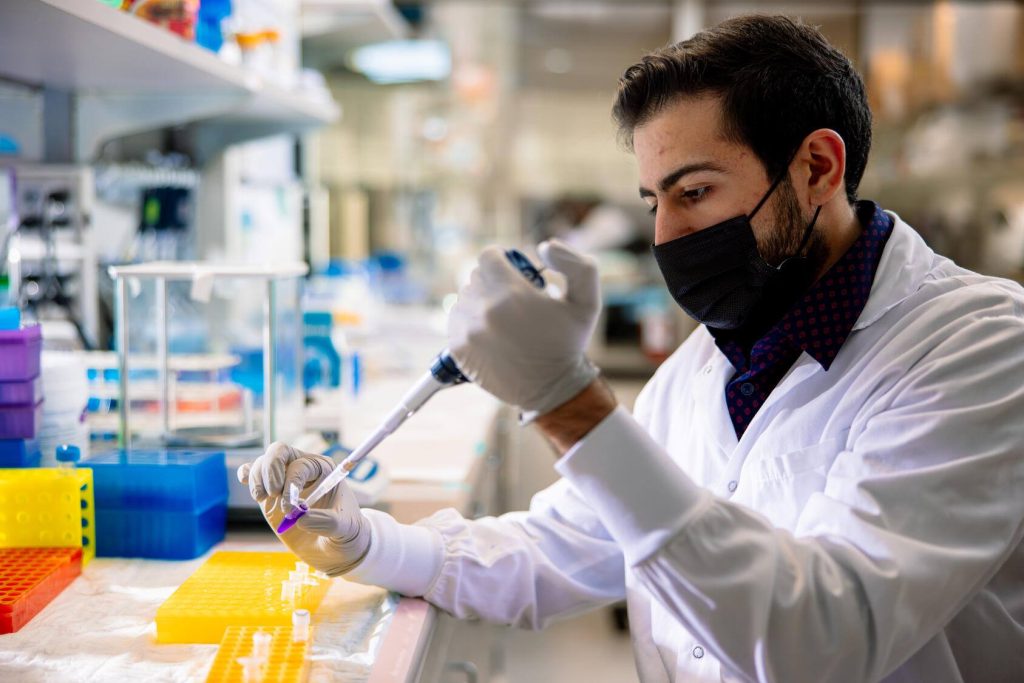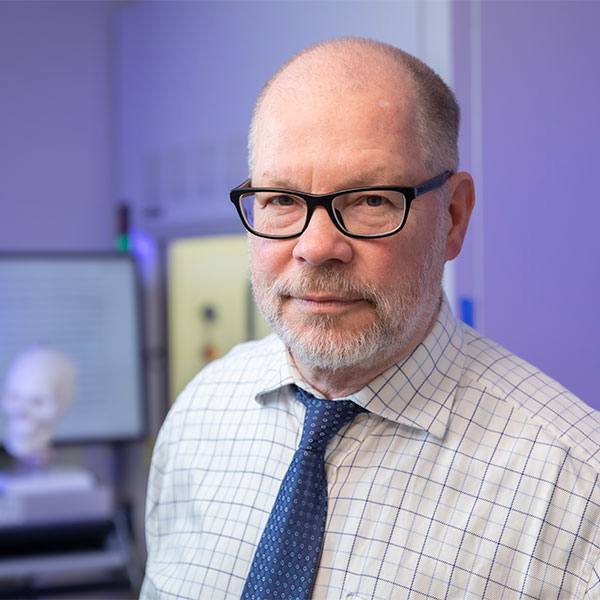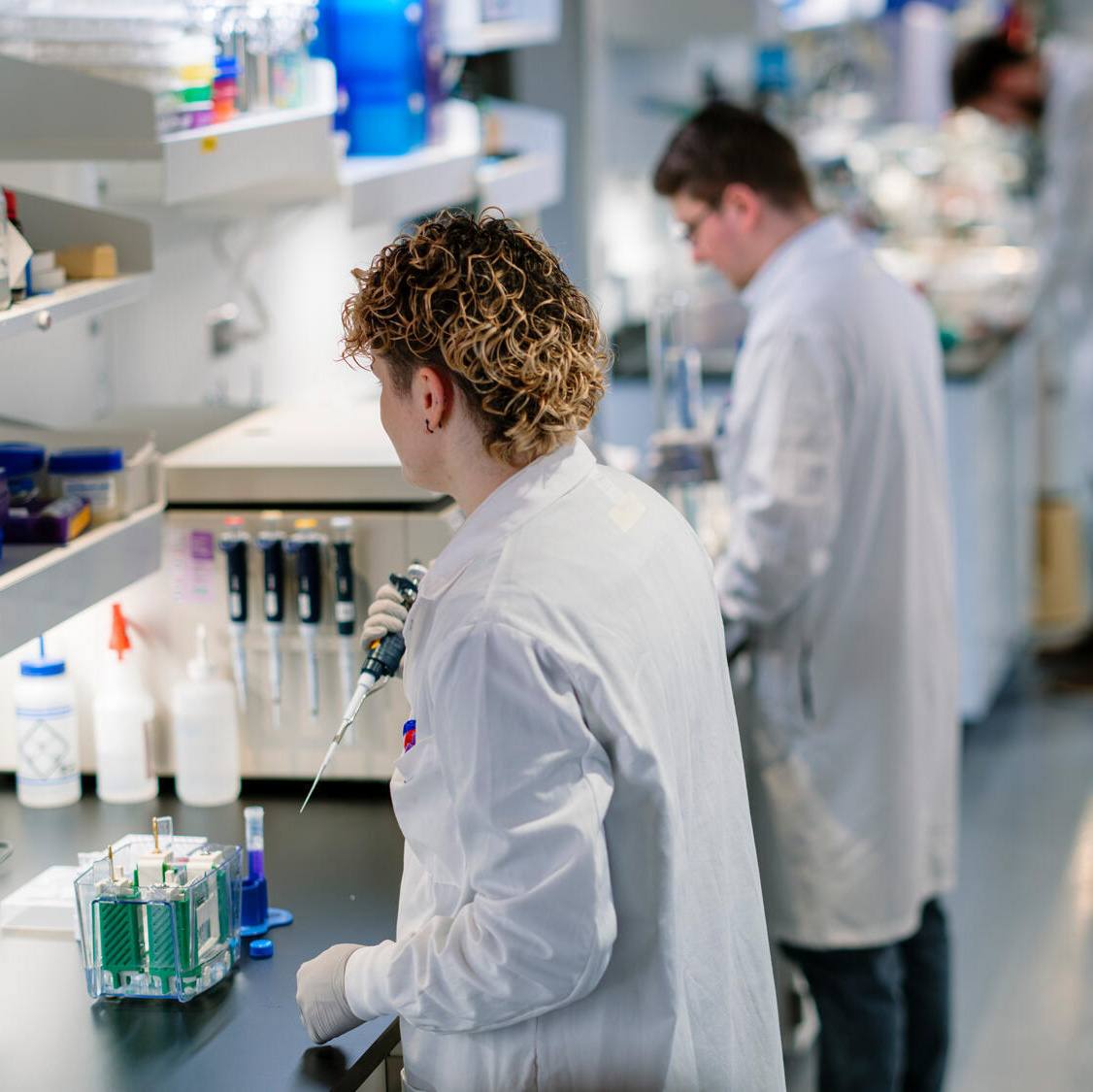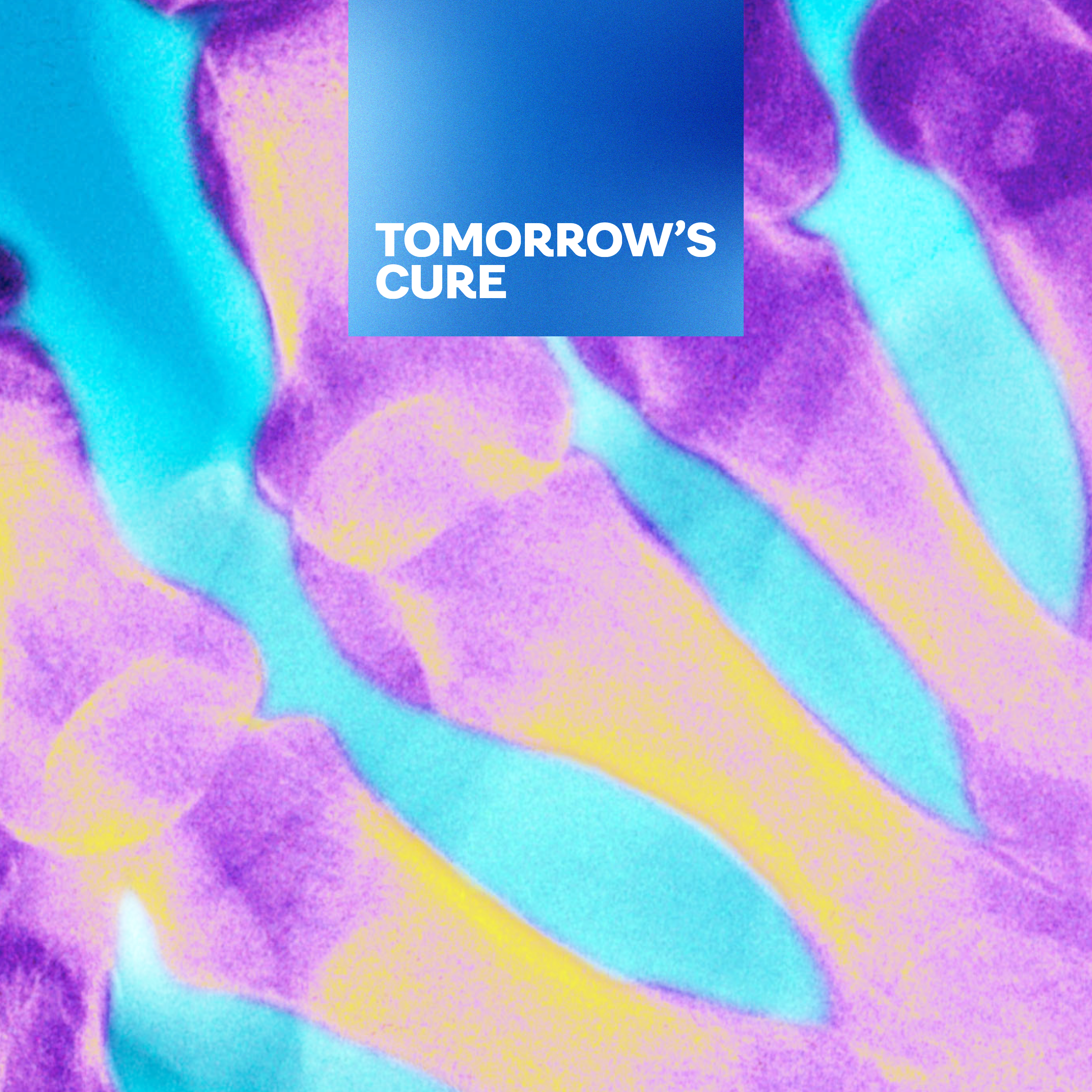-
Research
Harnessing vaccine technology to heal bone

ROCHESTER, Minn. ― Although fractures normally heal, bone will not regenerate under several circumstances. When bone does not regenerate, major clinical problems could result, including amputation.
To enhance the regeneration of bone, the Food and Drug Administration (FDA) approved recombinant human bone morphogenetic protein-2, or BMP-2. However, it is expensive and only moderately effective. It also produces side effects ― some severe.
Researchers at Mayo Clinic, along with colleagues in the Netherlands and Germany, may have a viable, less risky alternative: messenger RNA. This well-known platform for vaccines has already proven to be safe in human use by the FDA.
The findings in a study involving rats are published in Science Advances. These findings show that messenger RNA can be used at low doses to regenerate bone without side effects. Moreover, the quality of the new bone is superior to bone formed by BMP-2. The researchers also say that messenger RNA is a good choice for bone regeneration because it may not need repeat doses. Findings showed the new tissue growth that occurred after applying messenger RNA was biomechanically superior to the alternative method and remained so throughout eight weeks of monitoring.
Human bone develops in one of two ways: direct formation of bone cells from mesenchymal progenitor cells, or through endochondral ossification, in which cartilage forms first and then coverts to bone. The BMP-2 therapy uses the former method, and the messenger RNA approach uses the latter. In general, the researchers say their work proves that this method "can heal large, critical-sized, segmental osseous defects of long bones in a superior fashion to its recombinant protein counterpart."
The researchers say these findings in rats are limited, and studies are needed in large animals before any translation can be considered for clinical trials.
The authors are Rodolpho De la Vega Amador, M.D.; Michael Coenen; Christopher Nagelli, Ph.D.; Joseph Panos; and Christopher Evans, Ph.D. ― all of Mayo Clinic; Martijn van Griensven, Ph.D.; Carlos Peniche Silva, Ph.D.; and Elizabeth Balmayor, Ph.D. ― all of Maastricht University; and Johannes Geiger, Ph.D., and Christopher Plank, Ph.D. ― both of Ethris GmbH. The research was supported by the National Institutes of Health, and the John and Posy Krehbiel Professorship in Orthopedics.
###
About Mayo Clinic
Mayo Clinic is a nonprofit organization committed to innovation in clinical practice, education and research, and providing compassion, expertise and answers to everyone who needs healing. Visit the Mayo Clinic News Network for additional Mayo Clinic news. For information on COVID-19, including Mayo Clinic's Coronavirus Map tracking tool, which has 14-day forecasting on COVID-19 trends, visit the Mayo Clinic COVID-19 Resource Center.
Media contact:
- Bob Nellis, Mayo Clinic Public Affairs, newsbureau@mayo.edu







